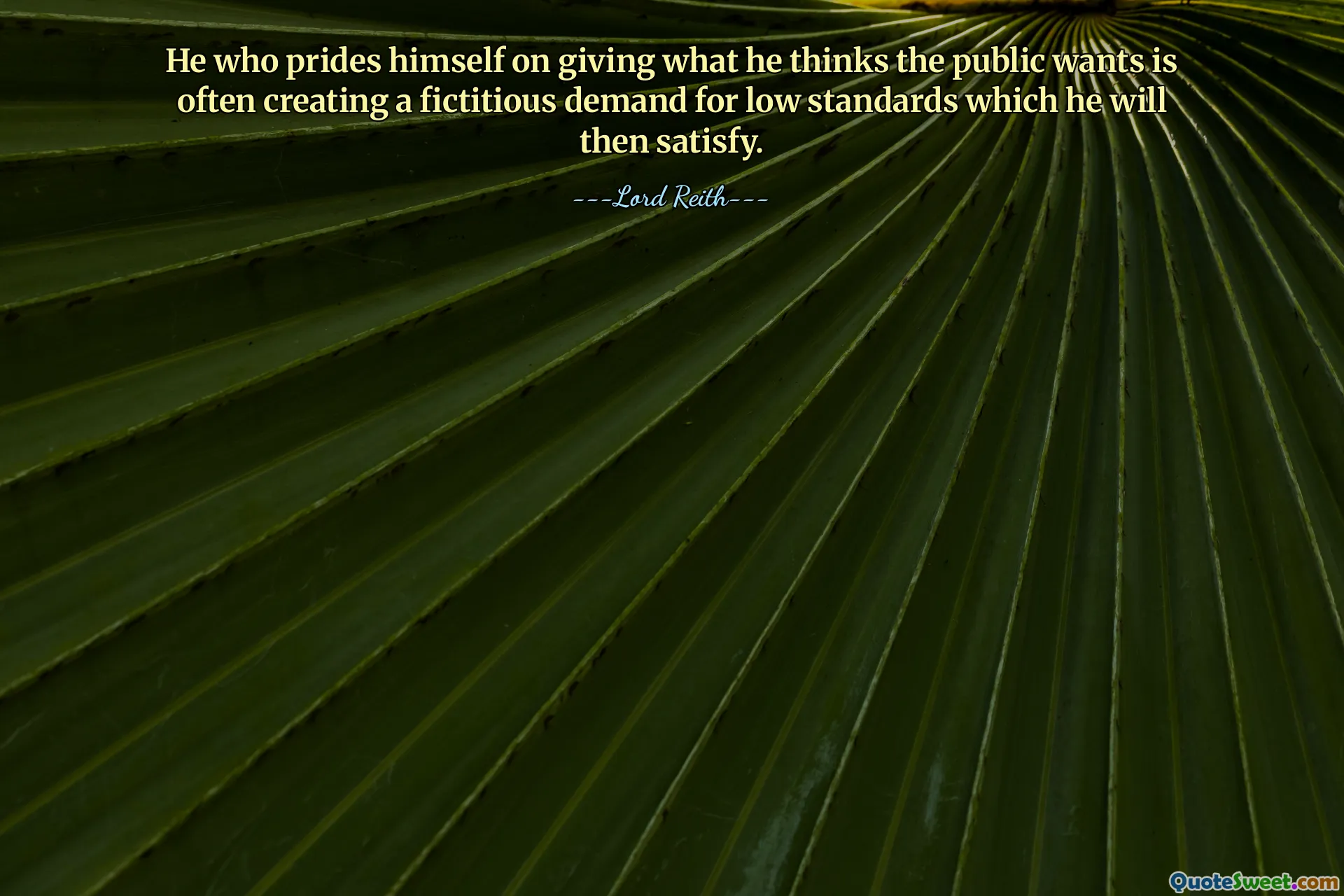
He who prides himself on giving what he thinks the public wants is often creating a fictitious demand for low standards which he will then satisfy.
This quote by Lord Reith provides a critical perspective on the dynamic between service providers and public expectations. It touches on the concept of perceived demand versus genuine demand, warning that catering solely to what is believed to be the public's desires might inadvertently lead to lowering standards. When someone prides themselves on delivering exactly what they think the public wants, they may not be responding to real needs or aspirations but rather shaping the public's desires to fit a preset, possibly diminished, standard. This self-fulfilling cycle can result in complacency and stagnation, stifling true innovation and excellence.
From a broader societal standpoint, this quote encourages reflection on how media, entertainment, and even political rhetoric can influence public opinion, sometimes by underestimating the public's ability to engage with more complex or higher-quality offerings. It challenges creators and leaders to resist the temptation of pandering to assumed popular tastes and instead strive to elevate the discourse and quality of their work. Ultimately, it is a call to responsibility, advocating for a balance between meeting audience needs and pushing boundaries to foster growth and improvement. This mindset encourages fostering higher standards, allowing public demand to evolve positively rather than remaining trapped in a cycle of mediocrity.










